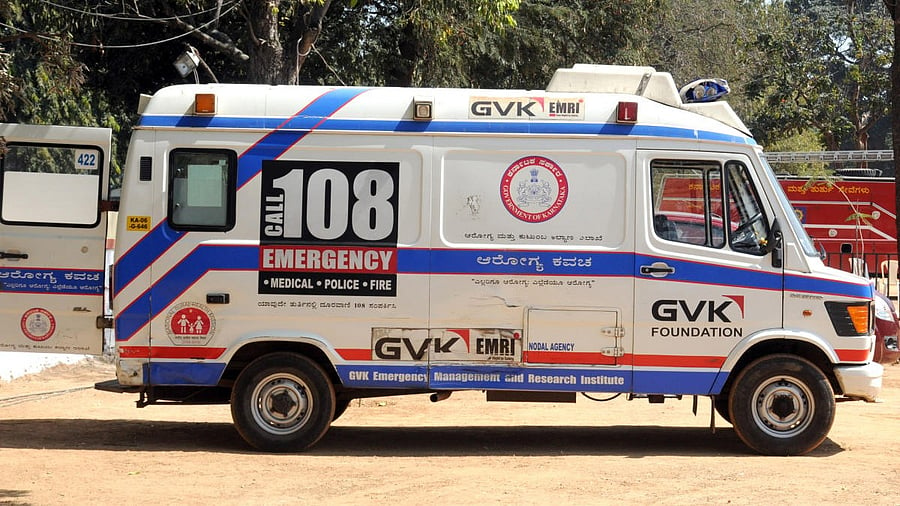
Karnataka's Arogya Kavacha ambulances. (File photo for representation)
Credit: DH File Photo
The Sarvatrika Arogya Andolana–Karnataka (SAA-K), a coalition of 30 health rights networks, while welcoming the Karnataka government’s decision to remove 180 Pradhan Mantri Bhartiya Jan Aushadhi Kendras (PMBJKs) from government health facility campuses, called for urgent follow-up measures to guarantee free, uninterrupted access to essential medicines within public hospitals.
“This is just a first step,” said Rajesh Kumar, SAA-K’s Bangalore Urban District convener. “No patient should be forced to buy medicines—whether from private pharmacies or Jan Aushadhi stores.”
SAA-K clarified that over 1,400 PMBJKs continue to operate outside government facilities, offering access to affordable generics for those who can afford them. However, the sale of medicines within public hospital campuses was a contradiction to the government’s commitment to provide them free of cost.
The group pointed to systemic gaps, particularly the unreliable supply of free medicines within facilities that forces patients to purchase drugs out of their pocket.
To address this, SAA-K urged reforms to the Karnataka State Medical Services Corporation Limited (KSMSCL), including better inventory management, transparency, and adoption of quality assurance systems.
“True savings come from public provisioning,” said public health researcher Prasanna. “States like Tamil Nadu have shown that quality medicines can be procured at 30 percent lower costs than Jan Aushadhi prices.”
SAA-K called for training doctors in rational drug use, improved stock forecasting, and accountability at every level. “The ultimate goal must be universal access to quality, free medicines in every government facility,” said Baby, a community facilitator from Daksha Samuha and SAA-K.
